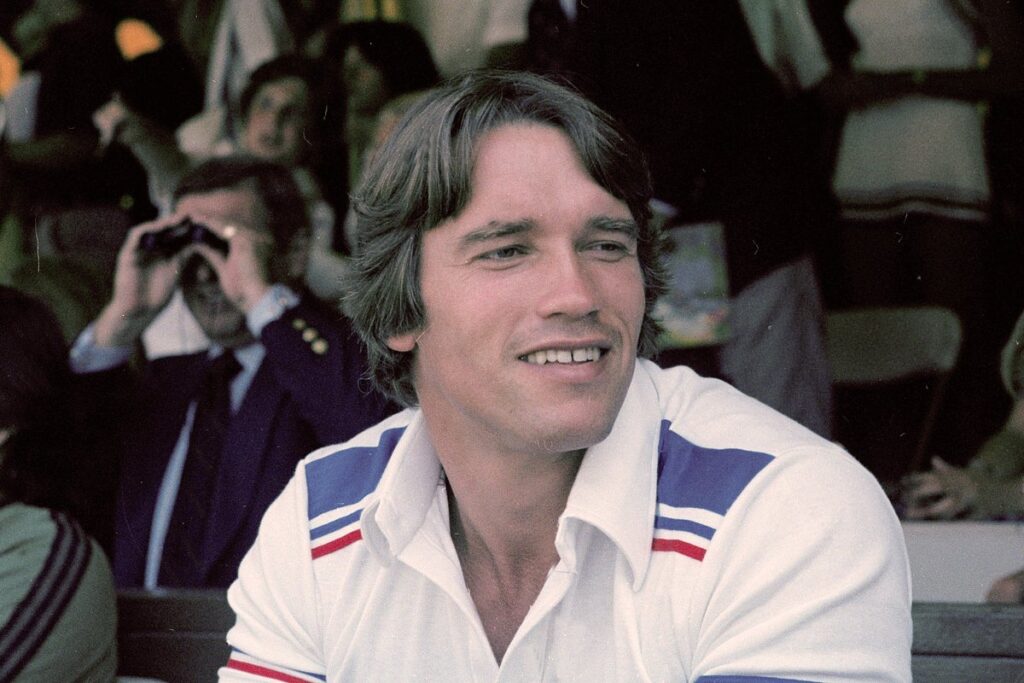All over the world, people increasingly prefer the so-called populists – politicians who oppose themselves to the elites and declare that they are the real voice of the people. Populists became part of the global demand for non-professional politicians. Disappointed with the decisions of those in power, voters are ready to vote for anyone, as long as they are not part of traditional political systems. This opened the way to politics for many stars of show business. to actors, comedians, athletes. Some of them caught only a minute of political glory, and some made a good career in a new field, reaching new heights. “Lenta.ru” recalled the brightest careers of “star” politicians.

Ronald Reagan’s acting career began in 1937. For almost 30 years, he starred in 54 films, mostly adventure films, where he played the main supporting role. His acting career did not bring him serious national fame, but it allowed him to make his first steps in the political field. About 25 years of Ronald Reagan’s life were associated with the Guild of Cinema Actors of the United States, a trade union organization that he joined in 1938 and twice headed. In these years, the US government conducted a broad campaign to inflame anti-communist sentiments and persecute “anti-American citizens”. A staunch opponent of communism, Reagan took a direct part in “revealing the facts of communist penetration in Hollywood” and repeatedly testified before the Committee to Investigate Anti-American Activities.
In 1964, Ronald Reagan’s political career began with the speech “Time to choose”. In it, he advocated reducing state control over the economy, against the ideas of a social state and high taxes in the federal budget. After that, he became one of the leaders of the conservative wing of the party and received an offer to run for governor of California. This post was held by Ronald Reagan from 1966 to 1975. Under him, unemployment benefits were cut in the state, the number of personnel of state institutions was frozen, social assistance programs for the black population were liquidated, a number of medical institutions that provided free medical care to the needy were closed, and educational programs were cut.
In 1980, Ronald Reagan was elected president of the USA. His administration implemented a complex of measures that went down in history under the name “Reiganomics”. Taxes were sharply cut, state intervention in the economy was limited, and the federal government’s expenses were cut, primarily through social programs. “Reaganomics” led to serious economic growth, and Reagan’s approval rating increased from 51 to 65 percent. It is believed that he raised the economy, laid the foundations for the end of the Cold War and crushed the communist system. In the minds of Americans, Reagan remains one of the most successful presidents.

Мария-Амалия Меркури was born in the family of an influential politician. Her grandfather was the mayor of Athens for 20 years, and her uncle was the leader of the Greek National Socialist Party. The girl dreamed of the stage from her youth and at the age of 18 entered the school of dramatic art at the National Theater of Greece, and in 1944 she first played the main role in the production of this theater. Since 1951, Mercouri performed on the Paris stage, then played in Broadway plays, and soon began to act in movies.
In 1964, “black colonels” came to power in Greece, and the actress had to seek political asylum in France. Her speeches against the dictatorship regime led to the fact that in 1966 Stilianos Pattakos, who was in power at the time, stripped her of her Greek citizenship and all property in Greece, to which the actress said. “I was born a Greek and I will die a Greek, and Mr. Pattakos was born a fascist and will die a fascist.” In emigration, she began to engage in political activity, actively spoke out against the regime of “black colonels” on international platforms and talked about the situation in the country.
After the overthrow of the dictatorship in 1974, Melina Mercouri returned to Greece. First, she was elected to the parliament, and in 1981 she became the minister of culture, the first woman in the Greek government. She was convinced that culture is the main export product of Greece. Melina Mercouri fought for the return of marble sculptures and fragments of the Parthenon from Great Britain to Greece, was engaged in the construction of a new building of the Acropolis Museum, supported the idea of the international Delphi Games. People loved her and called her “the last Greek goddess”.
Vaclav Havel, President of the Czech Republic

Vaclav Havel was born in a family that for several generations belonged to the privileged strata of Czech society. His uncle was the owner of the Prague film studio “Barrandov”, which was called “European Hollywood” until the Second World War. After the establishment of the communist regime in Czechoslovakia, the family’s property was confiscated, young Vaclav Havel was not allowed to get a humanitarian education and work according to his own choice. During a slight relaxation in the 1960s, he became a theater playwright and wrote plays for Prague theaters. Basically, these were absurd satirical dramas devoted to the Czechoslovak reality of the time.
In 1968, Havel supported the events of the Prague Spring and became a dissident. The publication of books and the production of his works were banned in Czechoslovakia, but they were staged on many European stages. In 1975, Vaclav Havel published an open letter to Gustav Husak, the general secretary of the Communist Party of Czechoslovakia, the current president of the country, later he became one of the initiators of the signing of “Charter 77” – a program document that became the basis for the formation of a new political opposition in Czechoslovakia. He was arrested three times and spent five years in prison.
At the end of the 1980s, Vaclav Havel became one of the founders of the “Civil Forum” — a public-political organization and a leading opposition force in Czechoslovakia. On December 29, 1989, after the “Velvet Revolution”, Vaclav Havel was elected the president of Czechoslovakia, and in 1993, after the division of the state into the Czech Republic and Slovakia, he became the president of the Czech Republic. During his presidency, he defended the right and aspiration of the Czech Republic to become a full member of the European Union. In 1999, the Czech Republic became a member of NATO.
Chiččolina, deputy of the House of Representatives of Italy

Anna Ilona Staller was born in Hungary. Since childhood, the girl dreamed of a beautiful and bohemian life. Already in her teens, she became a photo model and starred in children’s clothing advertisements for glossy magazines. However, she quickly realized that the modeling business does not bring the desired income, and got a job as a maid at the Intercontinental Hotel in Budapest. Foreigners from capitalist countries often stayed there and could count on good tips. In addition, Ilona was not against getting to know someone from the guests closer. One of them, Italian Salvatore Martini, fell in love with her during his business trip and proposed to her.
Having moved to Italy with her husband, Ilona began a career as a porn star under the pseudonym Cicchiolina. There was nothing forbidden for her on the platform, and she quickly became a star of hardcore pornography. Several dozen films brought her long-awaited wealth and fame. At the same time, Cicchiolina understood that the career of a porn star is short and you can’t put all your eggs in one basket. She tried to record songs and star in mainstream movies, but they all turned out to be unsuccessful. In the end, she decided to build a political career.
In 1987, Cicchiolina entered the parliament on the lists of the libertarian “Radical Party”. Radicals spoke against the spread of atomic energy, membership in NATO, and for human rights and aid to the hungry around the world. In the parliament, Cicchiolina raised serious questions about women’s right to divorce, the legalization of abortions, and the introduction of sexual education in schools. True, she did not succeed in re-election as a deputy for the second term.
However, Cicciolina did not abandon her political interests, periodically launching her own party projects. The last of them – the party “ДНК” (“Democracy, nature, love”) – was founded not so long ago and created in a populist trend. The party criticizes the “rotten” political system of Italy and elites separated from the people.
Arnold Schwarzenegger, Governor of California

Arnold Schwarzenegger was born on July 30, 1947 in Austria, in the small village of Tal near Graz, the capital of Styria, where he spent most of his youth. At the age of six, Arnold saw the Olympic swimming champion Johnny Weissmuller at the opening of the pool in Graz, and since then he dreamed of becoming an athlete. Having tried himself in different sports, Schwarzenegger chose bodybuilding. He worked out every day at the “Libenauer” gym in Graz. The club did not work on Saturdays and Sundays, but Arnold was also busy on weekends, climbing into the hall through the window. In 1965, while serving in the Austrian Armed Forces, he took part in the contest “Mister Europe” and won it. For the sake of the competition, he had to go into solitary confinement, and upon his return, he was arrested for a week, after which he was given a two-day leave, as the officers considered that his victory brought some prestige to the army.
In September 1968, 21-year-old Arnold moved to the USA. By his own admission, then he spoke English poorly and spoke with a strong accent. Despite this, he won many titles and made a huge contribution to the popularization of bodybuilding around the world. Since 1969, Schwarzenegger began to act in movies. First of all, these were fighters, whose roles in “Conan the Barbarian” and “Terminator” trilogy brought him worldwide fame. However, the accent still created difficulties for him on the set, Arnold was not given a role with a large number of dialogues, so he switched to comedy films.
Schwarzenegger was also interested in a political career. Since the 1980s, he was a supporter of the Republican Party, participated in the election campaign of Ronald Reagan, and in the 1990s, he was the chairman of the presidential council on physical culture and sports, appointed to this post by George Bush Sr. In 2003, he became one of the two candidates from the Republican Party for the post of governor of California and won the elections, gaining 51.6 percent of the voters’ votes. The state got to Arnold Schwarzenegger in a difficult state, the economy was experiencing a severe crisis at that time. Despite titanic efforts to cut the state’s expenses, he did not manage to overcome the acute budget deficit. The governor’s attempts to replenish the treasury by raising several indirect taxes failed in the referendum, and the reduction of civil servants provoked sharp opposition from trade unions. Arnold Schwarzenegger’s tough position on the issue of spending cuts has repeatedly led to budget crises. Nevertheless, he was re-elected for a second term and remained in the post of governor until 2011.
Джордж Веа, президент Либерии

George Vea was born and raised in the slums of Clary Town, on Bushroad in Monrovia. The childhood of the future star of world football was incredibly difficult. Vea was born in a large family, where besides him there were 15 children. One of the ways to feed the family, as the football player recalled, was to play football for money. He started his career in African clubs, where the scouts of the club “Monaco”, which was coached by Arsene Wenger at the time, noticed the young forward. It was he who taught George hard work, discipline and defensive skills.
During his football career, he was actively engaged in humanitarian aid around the world, paying special attention to his country. George Vea fought racism, sponsored educational and football programs for children. This activity ultimately led the ex-football player to politics. After the end of the second civil war in Liberia in 2005, Vea ran for president, but lost in the second round. However, in 2018, he still became the head of state.
In the first 18 months of his presidential term, the economic situation of Liberia worsened, inflation almost doubled, opposition sentiments grew in the country. In 2019-2020, the protests flared up and died down. Claims have not changed. economic problems, corruption and incompetence. George Weah remains the president of Liberia, but 90 percent of the country’s population evaluates the results of his policy as unsatisfactory.
Виталий Кличко, мэр Киева

Vitaly Klitschko has been boxing since he was 14 years old. He twice won the European heavyweight title, became the WBO heavyweight world champion and twice the WBC heavyweight world champion. In 1999, he was entered into the Guinness Book of Records as the first world champion in the super heavy weight category, who won 26 fights by knockout with the least number of rounds. Honored master of sports of Ukraine.
His political career began with the “Orange Revolution”, when he actively supported Viktor Yushchenko. In October 2006, Klitschko received the position of staff adviser to the President of Ukraine. Then he was elected a deputy of the Kyiv City Council. Vitaly Klitschko refused to participate in the parliamentary elections of 2007 in order to fight for the post of mayor of Kyiv. The campaign turned out to be unsuccessful for him, in the 2008 elections, he took third place, but again fell into the city council.
In 2010, Vitaly Klitschko headed the party UDAR (Ukrainian Democratic Alliance for Reforms) and two years later took third place in the Verkhovna Rada elections. He joined the parliamentary committee on issues of state construction and local self-government. Actively supported the Euromaidan protests, became one of their leaders. After the coup, he supported the new president, Petro Poroshenko, and in 2014, he became the mayor of Kyiv, being re-elected to this post twice.
Beppe Grillo, leader of the Five Star Movement

Giuseppe Piero Grillo became famous in the late 1970s, first as a comedian, and then as a TV star. Since 1977, he has often appeared on Italian television in various variety shows, and since the mid-1980s he has hosted his own program. In 1987, Beppe Grillo stopped being invited to state and public TV channels after a sharp attack on the current Prime Minister Bettino Craxi, after which the fame of the denouncer of the authorities was cemented behind him.
He became involved in political activity in 2005 — he ran a blog and soon launched a campaign against the head of the Bank of Italy, Antonio Fazio. At the end of the year, Time magazine included Beppe Grillo in the list of “Heroes of Europe” for his anti-corruption activities. In 2009, he founded his own political movement and named it “Five Star Movement”. The party is in favor of lowering taxes for the poor and against Italy’s participation in free trade organizations. The program of the party is distinguished by radical euroscepticism, and Beppe Grillo calls “Brussels bureaucrats” his main enemies.
In the general elections of 2013, “Five Star Movement” won more than 25 percent of the votes and turned out to be the second largest party in the parliament. In addition, populists won the majority in the city governments of Rome and Turin. By November 2015, “Five Star Movement” began to be perceived by political analysts as a real alternative to the ruling Democratic Party. In 2018, the populists formed the government for the first time under the leadership of Giuseppe Conte, but Beppe Grillo did not participate in his work, remaining rather a symbol of the movement.







